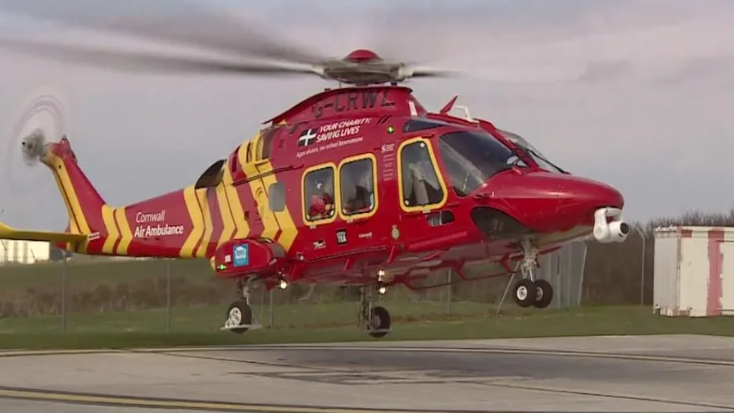'You never know what you're going to be doing'
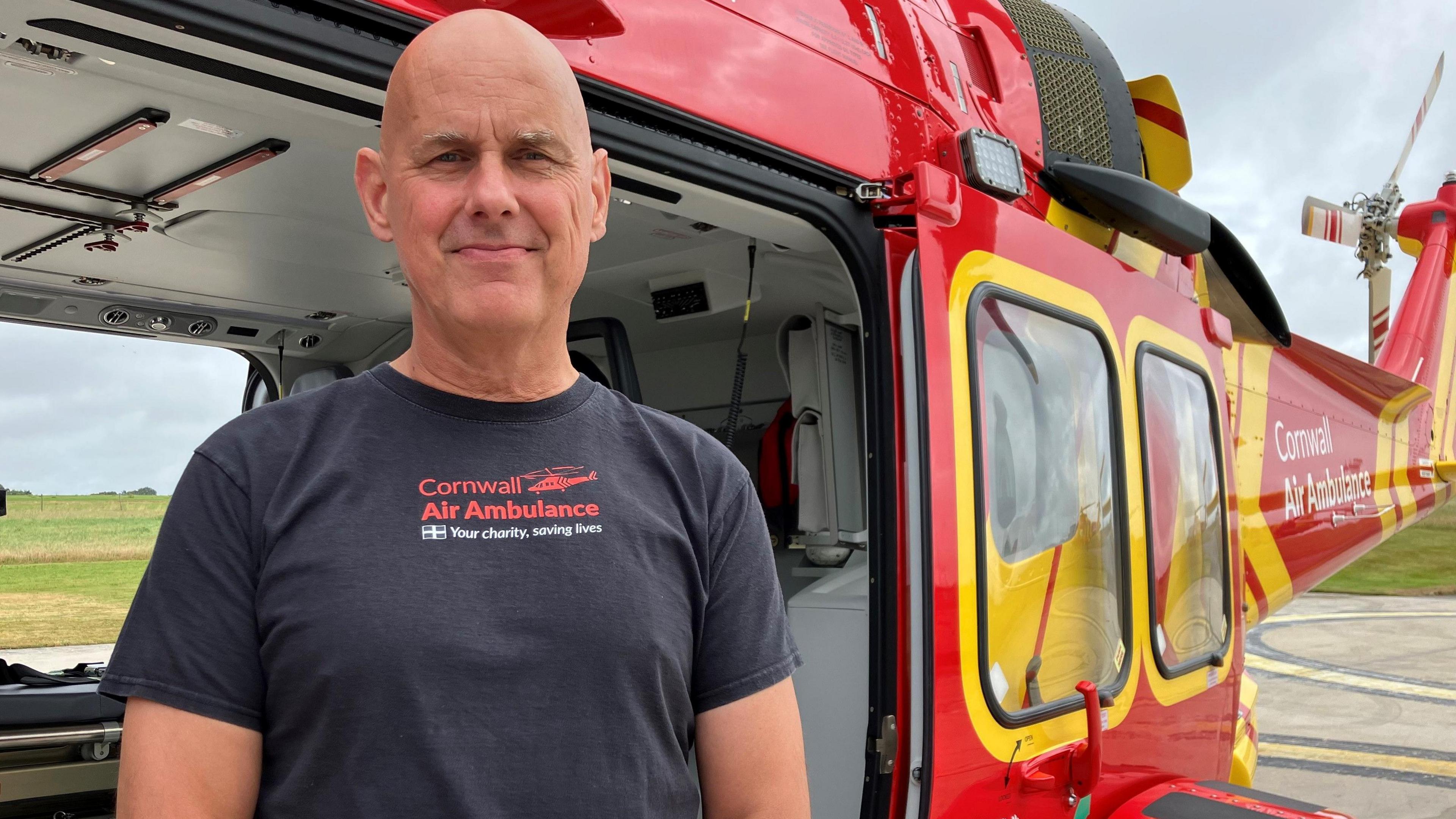
Mick McLachlan said the crews could help patients and their families even when the outcome was not as desired
- Published
Air ambulance crew members have spoken about the responsibility of caring for patients who are seriously unwell.
As Cornwall's second air ambulance takes to the skies, two of the crew have spoken about their lifesaving work.
Mick McLachlan, a specialist paramedic in critical care with Cornwall Air Ambulance, said the toughest part of the job was when the result for the patient was not the one he had hoped for.
He said: "But, even when it's not a good outcome, you can still affect how that is for that patient - you need to have a bit of an impact on their care and their last few minutes, and that also has a big impact on the families."
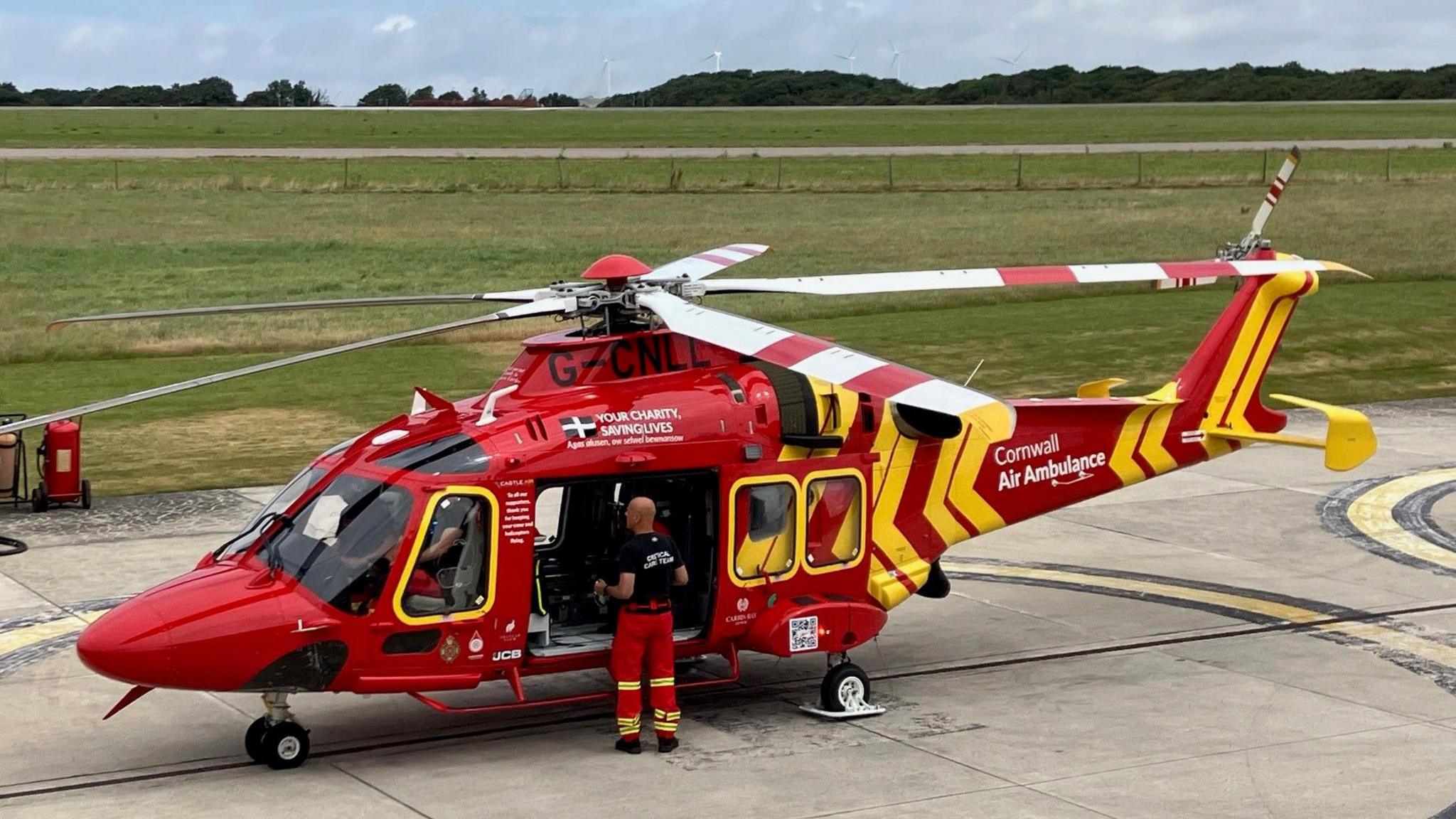
Mick McLachlan said emergencies the air ambulance was tasked with were evenly split between patients who had suffered medical episodes and traumatic incidents
Mr McLachlan joined Cornwall Air Ambulance in 2006, after having worked for Cornwall's ambulance service and also 11 years with the London Ambulance Service.
He said about 70% of callouts used to be to medical incidents and 30% to trauma emergencies.
However, the advent of the Peninsula Trauma Network, which covers Devon and Cornwall and the Isles of Scilly, had resulted in the air ambulance being tasked to more injured patients, so the callouts were now more of an even mix, he added.
Reflecting on which cases were most difficult to approach, Mr McLachlan said: "I think a lot of people think it's the gruesome things we see.
"But I think it's probably more the emotional side of things, where people come on holiday and their husband or wife dies and they're stranded in an unfamiliar place. It's always quite unpleasant."
"Medical events for that individual and that individual's family can make it one of the most significant days of their life, really."
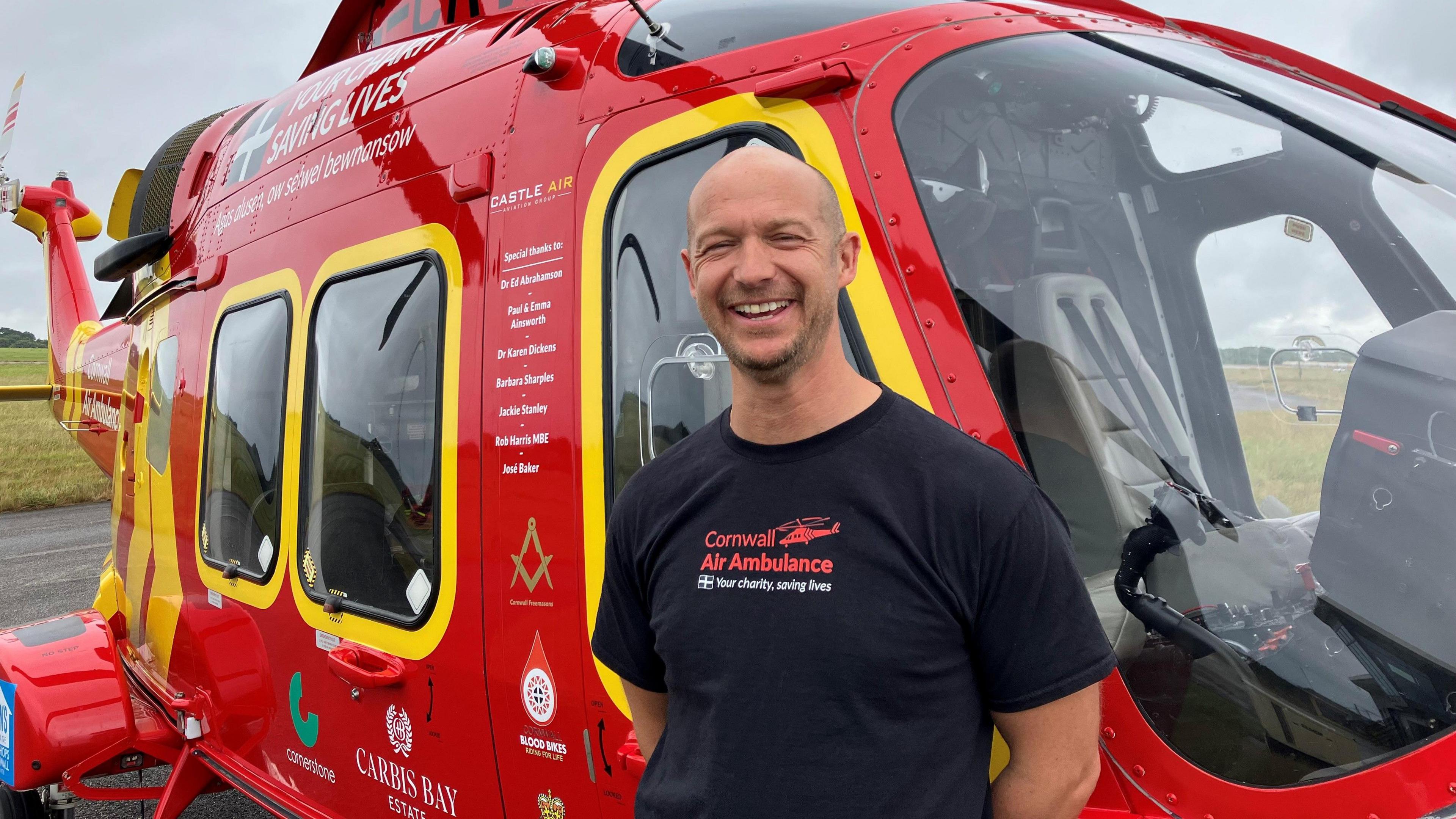
Captain Adam Smith said he liked the challenge of manoeuvring the helicopter into the best position to help a patient
Unit chief pilot Captain Adam Smith joined Cornwall Air Ambulance six years ago after flying helicopters on the North Sea and piloting the Kent, Surrey and Sussex air ambulances.
Along with clear skies, he said: "I think, as a pilot, the highs are getting it onto the beaches, getting the aircraft where it should be to help the most."
He found the "difficult days and nights" were often down to "the bits that we can't control, such as the weather, which make it hard for us".
Born in Truro, the pilot said: "All of us who've been in Cornwall long enough know that one coast is often fogged and the other one isn't."
It is Capt Smith's responsibility to explain why a patient might have to be transported to hospital by land ambulance, which takes longer, even though the air ambulance is there.
He said: "On occasion it is hard. We'll be the only people on scene, paramedics are busy, doctors are busy and we're just trying to explain why we're not conveying the patient just for aviation reasons whilst they prepare.
"So those are probably the harder ones - or not getting to a patient in time."
He said it was absolutely vital but could be frustrating to have to stick to such stringent laws when a patient was seriously unwell.
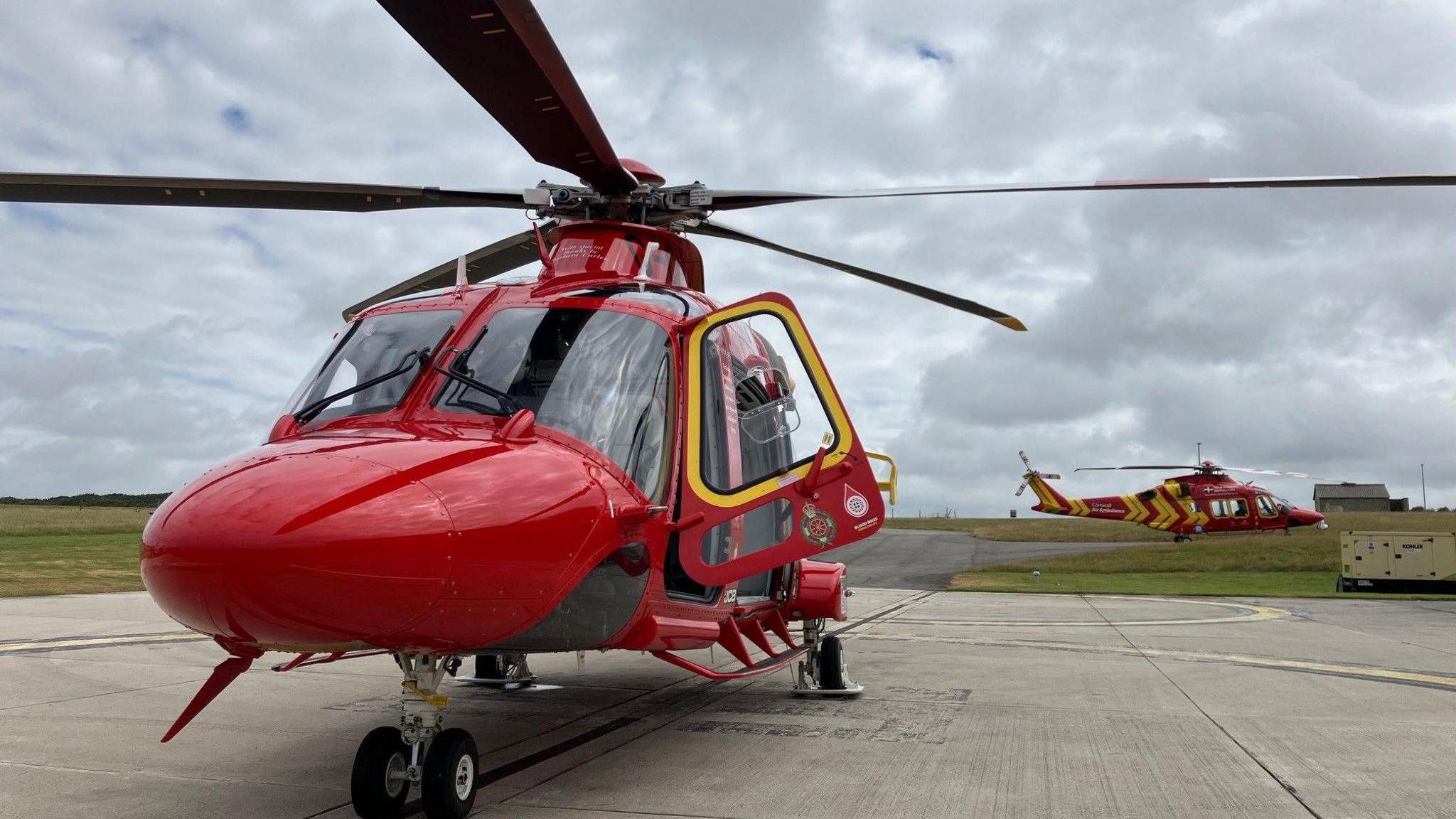
Capt Smith said his first consideration on arriving on the scene was the weight of the patients and relatives that may need airlifting
Capt Smith continued: "I think the hardest bit is ensuring that you're following the aviation rules because there's always the ability to push the boundaries as much as you can, but you've got to stick within the parameters.
"It's the self-discipline to stick within your lane."
One of the critical considerations is the weight to be borne by the aircraft.
The pilot explained: "As a pilot, when I land on scene, the first thing I'm looking at is how heavy the patient is.
"If we're taking a child, which guardian or parent we're taking with them and their weights, because I need to make sure that we can get them in the aircraft with the weight.
"We have to be the right performance class for the aircraft when we go to the hospital, and the key for that is us letting the team know.
"The team is well versed in it, they'll be able to clock it pretty quickly... to maybe just say: 'One of you may have to stay on scene when we go,' or 'How would you like to do it?'"
'It's very rewarding'
Mr McLachlan summarised: "You never quite know what you're going to be doing when you come to work, so it's an interesting job.
"When it's good, it's very rewarding.
"There are jobs that you know we can we can bring a lot to and that's when it's most satisfying, when you have been to something that you felt you could use your training and that it's made a difference to that patient.
"It sounds a bit corny, but it's nice to know you can help people and have an impact on them."
Follow BBC Cornwall on X, external, Facebook, external and Instagram, external. Send your story ideas to spotlight@bbc.co.uk, external.
Related topics
- Published3 May
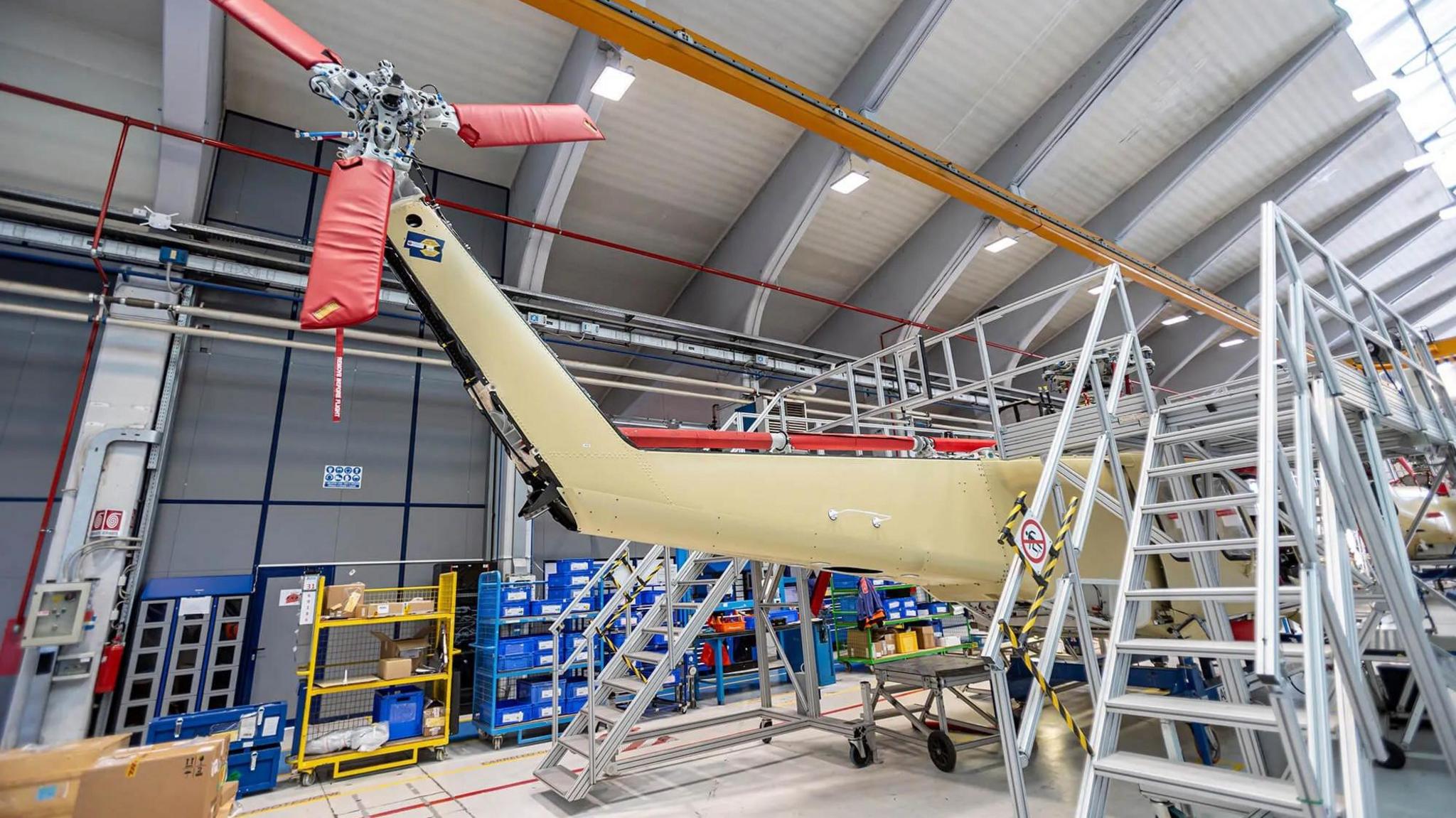
- Published17 January
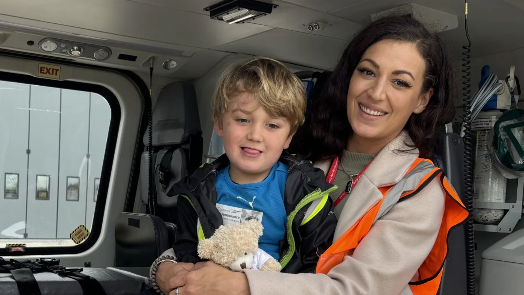
- Published17 August 2024
